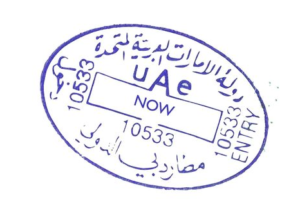GCC urged to launch flexible visas for restless millennials

New immigration system needed for increasingly mobile workforce – expert.
GCC governments may have to introduce a flexible visa system to cater to the rising number of millennials carving out professional paths that are not tied to one company or location, an immigration expert has warned.
They should also introduce dedicated ‘secondment’ visas for employees who relocate to another company in the region for a set period of time, and to facilitate temporary movement between free zones and non-free zones.
Expat employment visas in the Gulf are typically linked to one corporate entity and cancelled if an employee leaves that organisation.
There are also different visa requirements depending on whether a company is registered onshore or offshore.
However, with the rising trend in freelance working and flexible career choices among millennials and ‘centennials’ born after 1996, GCC decision makers may have to rethink their strategies.
In an interview with Arabian Business, Pauline Mathewson, managing partner, EMEA, at immigration services firm Fragomen, said: “Governments and employers in the GCC have historically rested their whole security around the sponsorship visa, so work visas are highly specific to an entity and a job.
“But the world today is such that people are very malleable and want to live their professional lives in a different, less geographically-based manner.
“We are seeing a lot of activity among people who want to work across regions and some of them don’t even want a permanent contract, they’re saying things like, ‘Do I really want to stay in that country for two years, maybe I’ll want to do something else?’ They want more flexibility in their job. So what’s the next step?”
Mathewson pointed out that one of the key reasons for the sponsorship visa system is protection of the workforce. Governments have a duty to ensure that a responsible legal entity is looking after working expats. So the rise in flexible working and an increasingly mobile workforce could pose challenges for policy makers.
The UAE has recently made it easier to obtain a freelancer permit, but it remains difficult elsewhere in the region.
“I’m confident governments are smart enough to [devise solutions],” Mathewson said. “But there’s certainly a growth in complexity in employment trends that they will have to get to grips with.”
She also called for the introduction of a secondment visa for employees working across different divisions of large firms with multiple registered entities across the Gulf.
“It’s a reflection of the level of maturity in the GCC, because companies often have multiple entities and you shouldn’t allow the legal entity to dictate where people can work, in the sense that if it’s ‘X’ company and they have three companies because they’re in three regions, it seems silly [that your visa would not allow for transfer between them],” she said.





